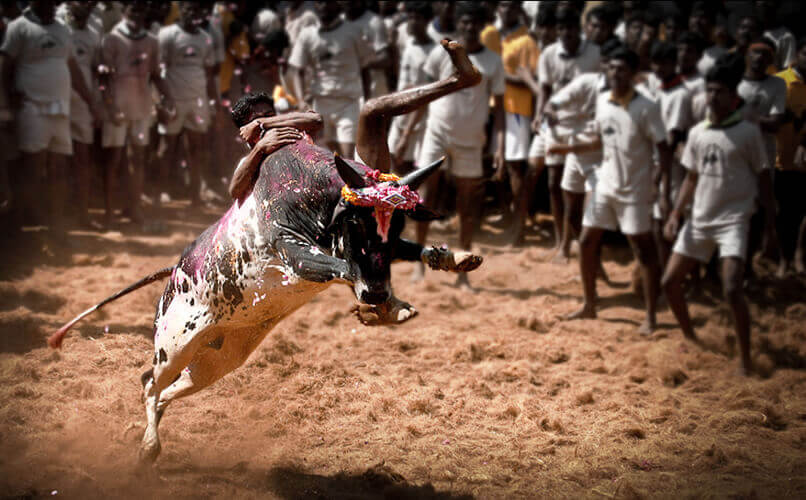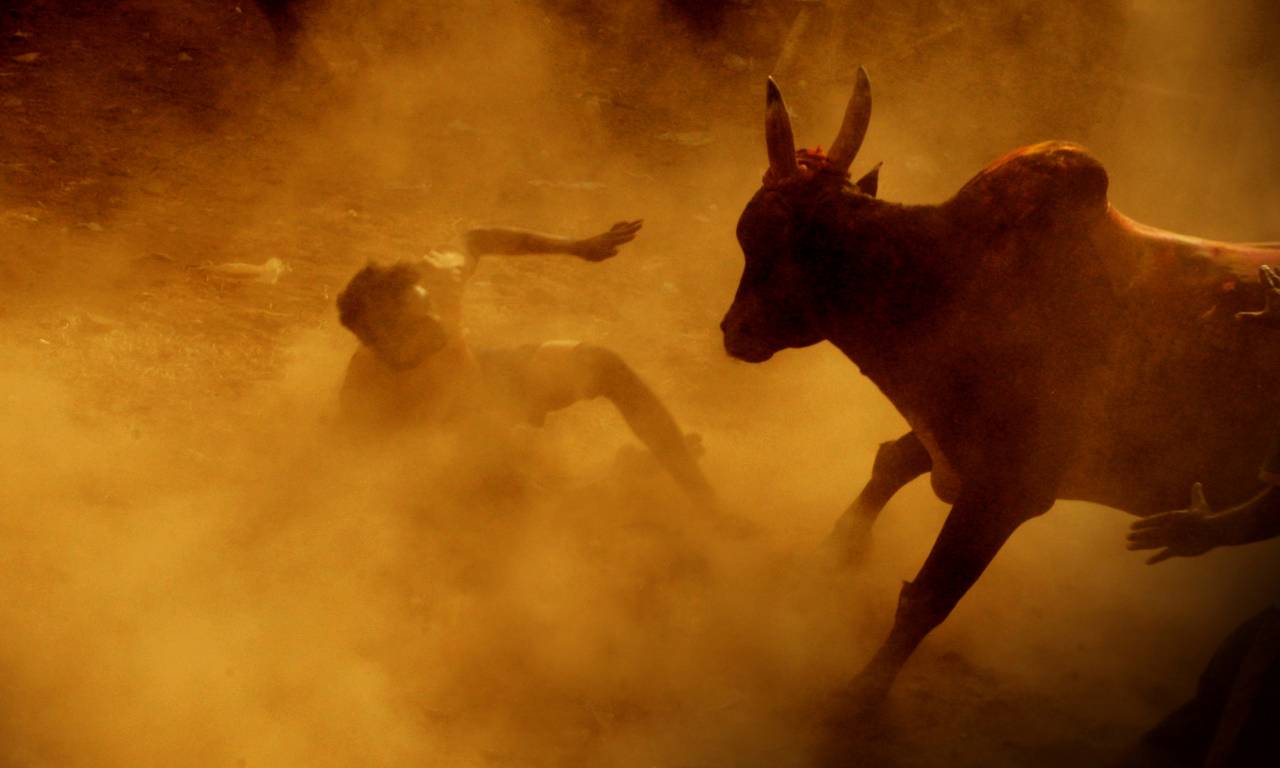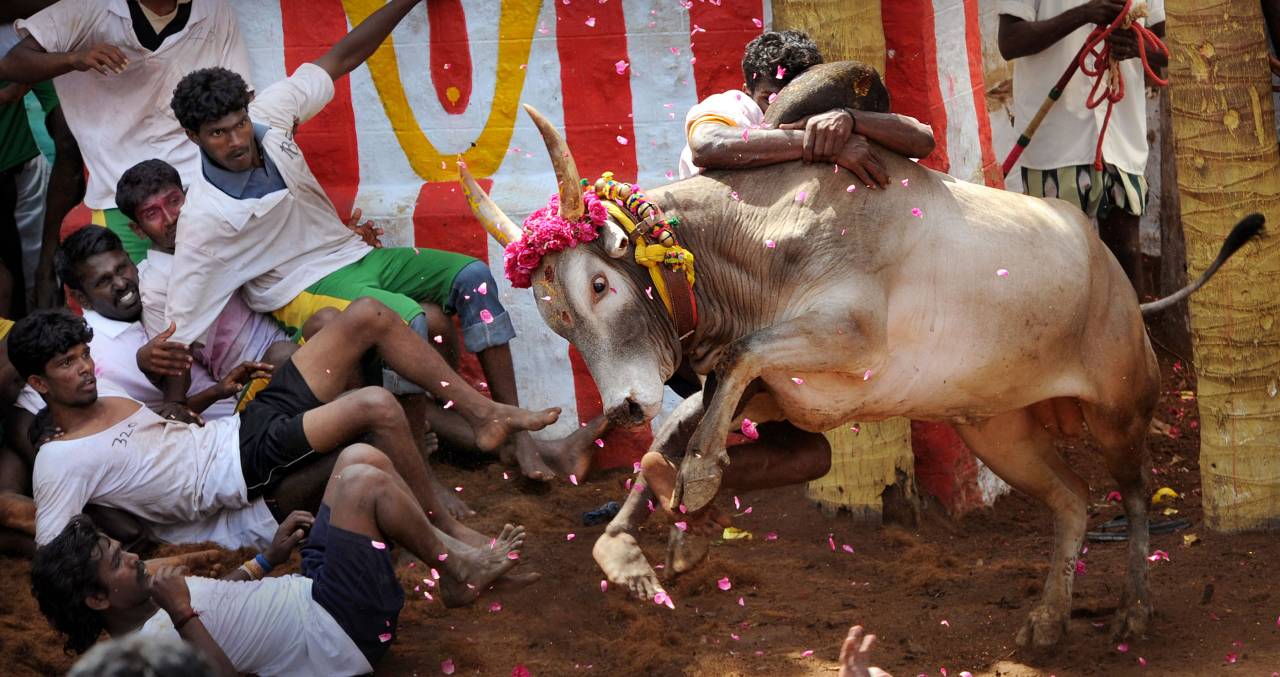“Thai maasam” as told in Tamil is the most important Tamil solar month which brings joy, celebrations and weddings in the Tamil families.
Thai Pongal or Pongal falls during this month which is a harvest festival celebrated by Tamil people at the end of the harvest season. Pongal is a four day festival celebrated by Tamils all over the world.
In Tamil, the word Pongal means “overflowing” which signifies abundance and prosperity. On the day of the festival, pongal is cooked which is a symbolic ritual of boiling fresh milk in clay pots and when the milk boils and overflows out of the vessel, people shout “Pongalo Pongal!” It is considered as the most auspicious moment.
The third day of pongal is popularly called as “Mattu Pongal In Tamil, “mattu” means bull. This day is celebrated in honour of bulls as there is a ritual of praying and feeding them for their contribution in helping the farmers.

Jallikattu, as an ancient sport of Tamil Nadu which dates back to 5000 years back with rock paintings of bull chasing sport that were discovered at Karikkiyur in Nilgiris in Tamil Nadu. Jallikattu is a tradition practiced to worship the bull mainly during the Pongal festival in Tamilnadu. Usually, a bull is released into a crowd of people and the participants try to hold on to its hump on Mattu Pongal. The tradition derives its name from the Tamil words “salli” which means coins and “kattu” which means package. This refers to prizemoney of coins that is tied to the horns of the bull, which participants try to retrieve. The bulls that perform well in the event are further used for breeding and also fetch higher prices in the markets.
According to popular legend, Lord Shiva gave his bull, Basava, the task of conveying a message to the people of Earth asking them to take an oil bath every day and have food once a month for six months. However, Basava confused the two messages and eventually asked people to eat every day and take an oil bath once a month. This made Lord Shiva angry and he punished Basava by cursing him to help humans plough the fields. People who believe this legend worship and try to tame cattle stock during Jallikattu. Though the Supreme Court of India imposed a ban on this traditional sport, the Tamils fought it out by going on a state-wide protest. They battled the protest with a silent protest as for the people jallikattu is not a simply a sport for entertainment, but it is part of ritual.

The Tamils believe that Jallikattu is born of devotion and that devotion is a tremendous tool to break all limitations within oneself – the limitations of psychological boundaries, emotional restrictions and karmic restrictions. If there is a flood of devotion, it will carry one across these boundaries effortlessly. It is one of the most important festivals celebrated by the TAMIL people in the Indian state of Tamil Nadu, the Indian Union Territory of Pondicherry and Sri Lanka.


















Discussion about this post